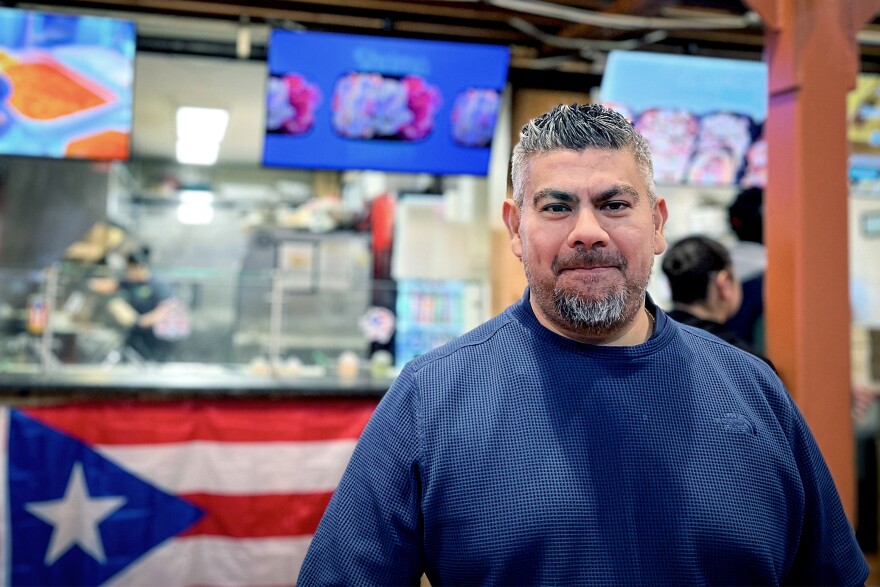After being furloughed from Mohegan Sun Casino in 2020, Enrique Rodriguez took a gamble with retirement funds to open a restaurant inside Parkville Market in Hartford. He ended up opening four, including Mofongo, Las Tortas MX, Burrito Loko and Fowl Play.
“It's all about taking care of food and taking care of people,” Rodriguez said.
Tariffs on imports imposed by the Trump Administration, however, have forced small Latino business owners like Rodriguez to decide between losing customers or losing money.
Rodriguez decided on the latter.
“Tariffs are a tax on American people. It's not like the vendors who sell us the product are going to eat the tariffs. They transfer the tariffs to us, the small business owners,” Rodriguez said.
Rodriguez estimates that his food costs jumped from 25% to 40%. According to Rodriguez, that takes up all his profit.
“In the past six months, we literally haven’t profited anything, but we just decided not to pass it down to our consumers,” Rodriguez said.
Many marketplace guests are coming from low income households in cities like Hartford and New Britain, Rodriguez said, so he wants to ensure that they can still find homemade Puerto Rican, Mexican or American meals that are affordable.
Mofongo is one of the more popular restaurants in Parkville Market, Rodriguez said. According to him, that’s because the menu has nine different kinds of rice bowls for only $14, as well as many other low-priced options. The most expensive menu item is “The Overload” which has a little bit of everything for just $20.
“If we make money to break even, it's a win for us right now. The minute that we start losing money and pulling money from our pockets or savings, then that's when we might change it. But for now, we want to take care of the people,” Rodriguez said.
Rodriguez intends to keep covering those tariffs for as long as he can, but he said he hopes that there will come a change sooner rather than later.
Small businesses vs. Trump tariffs
The U.S. Supreme Court is weighing its decision on Trump’s emergency tariffs after hearing arguments last Wednesday. In the case, small business owners are challenging the president’s ability to impose tariffs on imports under the International Emergency Economic Powers Act, or IEEPA.
U.S. Rep. John B. Larson, who represents Connecticut’s First Congressional District, introduced legislation to require Congress to vote before new tariffs can go into effect. He visited Parkville Market Monday to hear from business owners about their cost challenges due to tariffs.
“What the legislation does is requires that these tariffs have to come through the legislative process, so that we would have a say, and therefore the public,” Larson said. “There would be hearings. There would be ramifications of the upside and downsides.”
According to Larson, Trump circumvented the congressional process.
“Now all tariffs are not all bad in and of itself, but when they're arbitrarily issued through executive order, circumventing and placing yourself above the law and above the process, it can have bad ramifications, as we're witnessing currently,” Larson said.
For Parkville Management Owner and CEO Carlos Mouta, that means exploring different options to manage costs with the many different business owners in Parkville Market.
“It's been tough,” Mouta said. “I encourage them to cut back on the proportions and reduce the price, because some of them do serve too much food,” Mouta said. “So somebody can come in, they could have a small for 12 bucks and a large for 20 but we need to bring back lower, affordable prices, because $20 is a lot.”
Lowering prices is especially needed given other costs that have risen in apparel, furniture and other goods, Mouta said.
“People are tired. The middle class, to me, is disappearing. If you don't make 20 bucks an hour, you can't live in an apartment, you can't do anything, and there’s no money left for anything else,” Mouta said.
Restaurateur Enrique Rodriguez, however, still has hope.
“Better times will come,” Rodriguez said. “Let's be hopeful. That's all we can do.”





